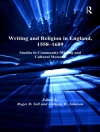This wide-ranging and convincingly argued study looks at the issues of and attitudes towards slavery in Jane Austen’s later novels and culture, and argues against Edward Said’s critique of Jane Austen as a supporter of colonialism and slavery. White suggests that Austen is both concerned and engaged with the issue, and that novels such as Mansfield Park, Emma and Persuasion not only presuppose the British outlawing of the transatlantic slave trade but also undermine the status quo of chattel slavery, slavery’s most extreme form.
Tabla de materias
Acknowledgements Preface ‘We Have No Slaves at Home- Then Why Abroad?’ PART ONE: THE CHAWTON NOVELS Mansfield Park : Absenteeism, Autonomy and the Slave Trade Emma : Autonomy and Abolition Persuasion : Radical Change and the Royal Navy PART TWO: THE CONTEXT IN WHICH JANE AUSTEN WROTE THE CHAWTON NOVELS Some Philosophers on Race and Slavery: Opposing Viewpoints Abolitionist Influences on Jane Austen: Some Possibilities Conclusion Appendix 1: On Colonisation: Samuel Johnson The Idler, 1759 Appendix 2: Argument against Slavery: Samuel Johnson, 1777 Appendix 3: William Cowper’s 1785 The Task : Extract quoted by Thomas Clarkson, 1807 Notes Bibliography Index
Sobre el autor
GABRIELLE D.V. WHITE taught philosophy for the University of Leeds, UK and the Open University, UK. She was previously an English Teacher in Secondary Schools and is a former researcher for the University of Leeds and the British Library, UK.












